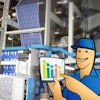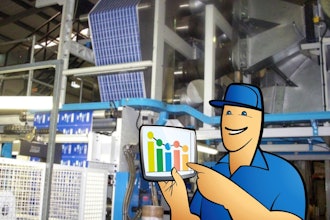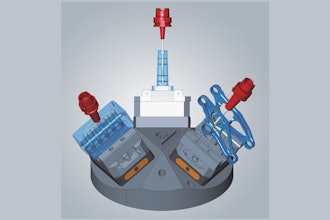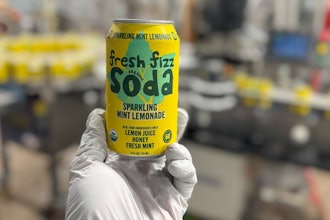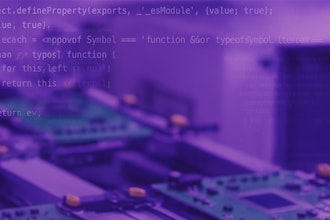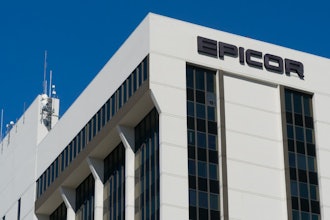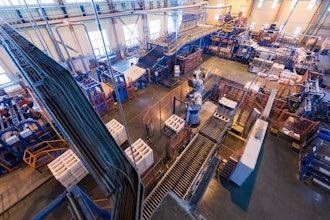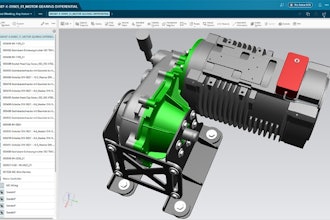Searching for an ERP solution can be a daunting task full of decisions. While researching possible systems, you’ve likely encountered the choice between vertical-specific and generic ERP. As other determining factors regarding ERP selection can be more challenging, the reasons for choosing an industry-specific solution are evident. For companies manufacturing in highly regulated industries, such as food, beverage, pharmaceutical, nutraceutical, chemical and cannabis, the benefits are proven invaluable in addressing strict compliance and traceability requirements. With these advantages, ERP solutions with industry-specific functionalities will continue to drive success in the ERP market well into the future.
Why Choose Industry-Specific Over Generic ERP?
Historically, ERP solution vendors incorporated a more general, “one size fits all” paradigm with basic functionalities and features suitable to a wide range of industries. Customized features were added to the generic system to address a client’s specific wants and needs — often with varying degrees of success. These solutions lacked the capability to address the requirements of particular verticals that would benefit from a more in-depth and personalized solution. To address this issue, a shift to industry-specific ERPs has emerged to handle companies’ unique business processes with little or no customization required. A survey of industrial executives (200 manufacturing and other executives) provides insight into this trend towards vertical-specific ERP. Over 67 percent of those surveyed reported wanting to have more industry-specific functionality in their ERP system and that they struggle with financial gaps due to the lack of depth in their solution. It has become glaringly apparent that companies no longer seek out generic, out-of-the-box systems, but instead are focusing on forward-thinking solutions that incorporate the best practices and requirements specific to their needs.
Catering to a manufacturer’s desire for an integrated solution that addresses production, management, operations, quality control, regulatory compliance and more, an industry-specific solution handles all business processes with the following benefits:
Industry Knowledge and Experience
Vertical-specific ERPs utilize solution experts who know the terminology, business methods, economic climate and compliance requirements common to particular industries, incorporating critical features into the software and implementation process. Since requirements vary widely, key functionalities are developed to fit an industry’s needs — providing increases in speed, efficiency and relevancy to offer a distinct advantage over competitors. Optimization of business processes is achieved with an ERP vendor’s deep understanding of the unique needs and best practices of a particular business vertical. Familiarity with similar manufacturers and their end-users, provides a valuable foundation of information that transforms into ERP application and software enhancements. This industry expertise also helps identify issues or problems in current manufacturing processes, offering quicker resolutions. In addition, staying in line with with technological innovations and trends allows industry-specific ERPs to incorporate relevant features and training that benefit manufacturers now and in the future.
Time and Cost Savings
When developed for a particular industry, a vertical-specific ERP is easier to implement, saving valuable time and money. Understanding industry needs and utilizing extensive experience, ERP vendors can deliver an implemented solution and necessary training on an abbreviated timetable. The need for add-on capabilities or customizations is minimized, further increasing the return on investment after ERP implementation. Industry-specific ERP solutions have also been designed to streamline business and manufacturing processes with templated reporting, expedited workflows and built-in APIs with other industry solution providers.
Industry-Specific Functionality
An industry-specific ERP not only offers standard ERP capabilities covering basic business requirements, but also provides functionality unique to a particular vertical. For process manufacturers this means providing a higher level of control in a variety of areas including: tracking materials throughout production, regulatory and compliance management, product safety and recalls, recipe formulation and quality control. In addition, regulatory changes and trends in the industry are well-known to vertical-specific vendors which ensures that ERP software processes and functionalities are kept up-to-date to support their customers. In addition, implementation experience with other companies in the industry allows utilization of customer input to improve ERP system processes.
Make the Vertical-Specific Choice
Choosing between a generic or industry-specific ERP solution for your business is one of the first decisions you’ll make in your search for an integrated ERP system. In addition to handling the critical business functions found in generic ERPs that include accounting, manufacturing, quality, inventory, financial, sales and reporting, a vertical-specific solution goes further to meet your unique needs. Research shows that an industry-specific ERP handles manufacturing requirements more completely than a generic ERP system — providing industry knowledge and experience, time and cost savings and functionality specific for your industry. By selecting a vertical-specific ERP solution, your company can grow in your regulated market.
Daniel Erickson is a Product Strategy Manager at ProcessPro.




